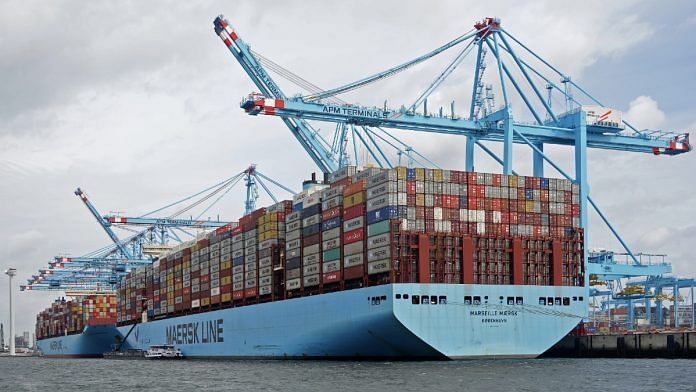Africa is on the cusp of a new era of prosperity as a manufacturing centre for high-tech industries and a key link in global supply chains, a new report from the United Nations trade body United Nations Conference on Trade and Development (UNCTAD) says.
As the African single market – the African Continental Free Trade Area (AfCFTA) – begins operations, UNCTAD says that, with its rich natural resources and growing consumer demand, the continent is well positioned to transform its economic fortunes.
AfCFTA, which was officially launched in 2021, is focusing on operationalizing the agreement through initially eight nations concentrating on trading 96 products. When fully realized, the AfCFTA will create the world’s biggest free trade area, home to 1.7 billion people.
“This is Africa’s moment to bolster its position in global supply chains as diversification efforts continue. It’s also an opportunity for the continent to strengthen its emerging industries, foster economic growth and create jobs for millions of its people,” said UNCTAD Secretary-General, Rebeca Grynspan.
Raising wages across Africa
Launching UNCTAD’s Economic Development in Africa Report 2023, Grynspan said creating an environment conducive to technology-intensive industries would help raise wages across the continent, increasing prosperity and driving domestic consumer demand.
In January 2023, the World Economic Forum’s Insight report, AfCFTA: A New Era for Global Business and Investment in Africa, predicted that combined business and consumer spending across Africa could total $6.7 trillion by 2030 thanks to the free trade deal.
It said the four sectors that were likely to be the fastest growing due to rising local demand and their suitability for local production were: automotive; agriculture and agro-processing; pharmaceuticals; and transport.
Supply chain sweet spots
The UNCTAD report focuses on technology-intensive supply chains and industries which it says have the potential to make the biggest impact on Africa’s economies, and its analysis mirrors the conclusions of the Forum’s report.
It says there are opportunities in growing demand for electric vehicles, mobile phones and solar panels. Public health would benefit from African businesses playing a bigger role in pharmaceutical and medical device supply chains. And better resource supply chain integration would aid sustainable development.
The UNCTAD report says: “As the global economy adapts to climate change … there will be a rise in the demand for specific metals with utility in the low-carbon transition and green mobility, for instance, aluminium, cobalt, copper, lithium and manganese.
“Given the abundance of these minerals, in particular key metals required for the low-carbon transition, the continent can reposition itself as a supplier of raw materials for global supply chains. In fact, 48.1% of global cobalt reserves and 47.6% of global manganese reserves are located in Africa.”
By relocating to Africa, high-tech industries like electric vehicles and mobile phones would be closer to supplies of specialised raw materials and new markets, says Senegal’s Minister of Economy, Planning and Cooperation in a preface to the UNCTAD report.
Deeper integration into global supply chains would also diversify African economies, boosting their resilience to future shocks, and would have the added benefit of making global supply chains more resilient too, the report says.
To facilitate the matching of foreign and domestic firms and create sustainable supply chains, the World Economic Forum has been working on creating Supplier Databases with Sustainability Dimensions, known as ‘SD2s’, initially in Cambodia and now in Namibia, each time in partnership with the country’s development agency.
“Supplier databases can help foreign firms find qualified domestic firms with which to partner, thereby increasing investment interest and development impact,” said Matthew Stephenson, Head of Investment Policy and Practice at the World Economic Forum. “By including information about domestic firms’ sustainable operations within the database, this will help domestic firms be more attractive as suppliers for multinationals looking to manage their supply chains in a sustainable manner,” he continued.
Africa’s solar potential
Africa also has “vast renewable energy potential”, especially in solar which would reduce costs for manufacturers and reduce reliance on fossil fuels. Currently only 2% of global investments in renewable energy go to Africa, UNCTAD says.
Although not all countries in Africa might be able to produce solar panels themselves, the benefits to the climate, employment and economies of increased use of solar power would be “substantial”, with local entrepreneurs ready to step up if the opportunity was presented.
To seize the potential opportunities, the continent requires a “significant investment in infrastructure to bolster its position as a supply chain destination”, the report adds, calling for more affordable financing arrangements for African countries and businesses.
In particular, African small and medium-sized enterprises need more supply chain finance, which bridges the payment time gap between buyers and sellers, improves access to working capital and reduces financial strain.
Achieving this will demand regulatory changes, a better understanding by lenders of the risks involved and better credit information about companies. Most of all, the report says African nations need debt relief to give them the financial freedom to invest in supply chains.
UNCTAD says that African nations currently pay an average of four times as much for their state borrowing as the United States and eight times more than European economies.
This article was first published in The World Economic Forum.



